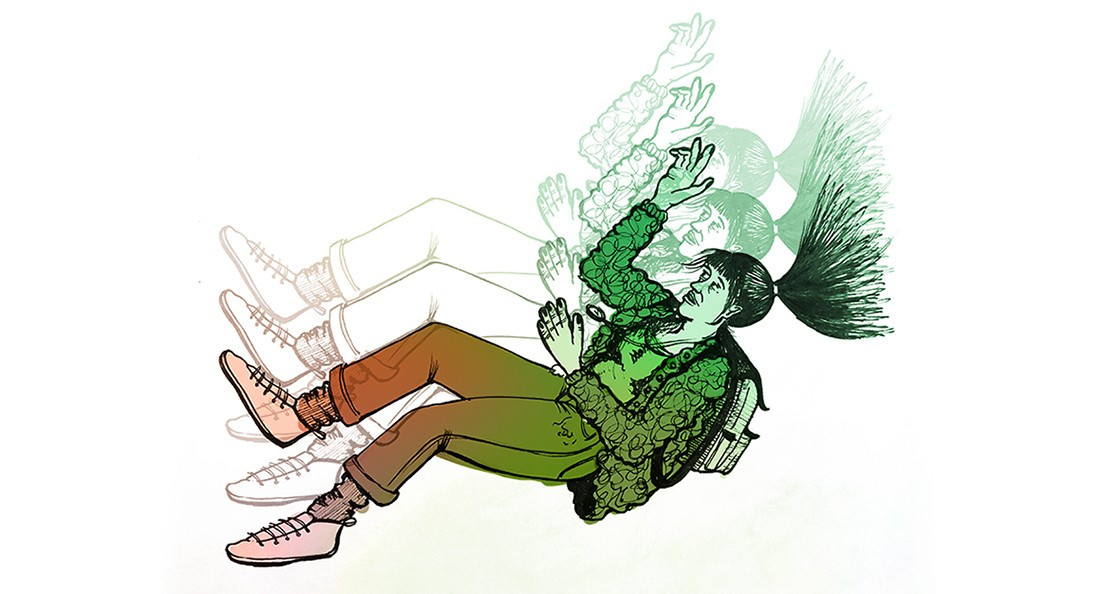Flailing upwards
Growing up through, and yelling at, younger versions of ourselves in literature
“It can be really exasperating to look back at your past. What’s the matter with you? I want to ask her, my younger self, shaking her shoulder.”
So laments Selin, the 18-year-old protagonist of Elif Batuman’s 2017 novel, The Idiot. This book follows Selin through her freshman year of college.
It’s frustrating both in how well it’s written and how familiar it feels, for someone who was also once a dubious girl-woman who felt unsure in an academic setting, and most social settings in general.
I graduated from the University of Winnipeg in 2009, flailed aimlessly for a few years, then went back to school when the flailing got out of control. My memories of academia are fleeting and generally positive, but almost entirely forgotten – pushed out of the way by the pleasant monotony of the present.
Coming-of-age books are one of my favourite literary genres, I think because they remind me of what I’ve forgotten: the torment of learning how to be.
I’m still figuring it out, but each encounter is slightly less awkward – or I’m at least getting better at embracing the awkwardness. Experience has equipped me. Books like The Idiot serve, too, as a reassurance I’ve come out stronger on the other side.
I see a younger me in Selin – in her unsureness, in her need to carve out an identity without calling too much attention to herself. I, begrudgingly, felt pangs of recognition as she falls for Ivan, an older student who can aptly be described as a pseudo-intellectual “fuckboy” (the type who lords their smarts over you, whose education somehow outweighs your lived experiences and is used as a crutch for gross behaviour).
The more Ivan treats her poorly, the more Selin craves his attention – and the more I internally scream, “Stay away! He’s using you!” But I would’ve fallen for an Ivan, too, when I was 18. Thirty-year-old Laina has learned to spot those types from a mile away – and to keep them there (preferably further).
I saw parts of me in Madeleine Hanna, the central character in Jeffrey Eugenides’ 2011 novel The Marriage Plot. Madeleine majors in English “by default,” because “English was what people who didn’t know what to major in majored in.”
Like Selin, she falls for the wrong person and tentatively wades through academia, where her intelligence isn’t exceptional – it’s commonplace. The scenario felt familiar, but only after having lived a similar one myself. As I read, I shouted out warnings to Madeleine, to my past self.
Like Selin, I sometimes look back at my younger self and want to shake her. If I were to go back, would I allow her those follies? Was every pain and embarrassment a necessary rite of passage?
As Tobias Wolff notes in his 2000 memoir This Boy’s Life, “knowing that everything comes to an end is a gift of experience, a consolation gift for knowing that we ourselves are coming to an end. Before we get to live it we live in a continuous present, and imagine the future as more of that present. Happiness is endless happiness, innocent of its own sure passing. Pain is endless pain.”
Only once we’ve lived through our worst times can we look back and marvel at how we survived. How will I reflect on the present me? Will I be proud of her? Will I want to shake her? Which behaviours will shame me, which misguided obsessions will make me roll my eyes? I guess I can only look forward to the gift of age to know for sure.
Laina Hughes works in publishing and co-founded Dear Journal, a feminist print anthology, and Galentine’s Day, a not-for-profit event that supports vulnerable women on Valentine’s Day. She can be found in bed with her heating pad and in the company of her two black cats.
Published in Volume 72, Number 20 of The Uniter (March 8, 2018)







